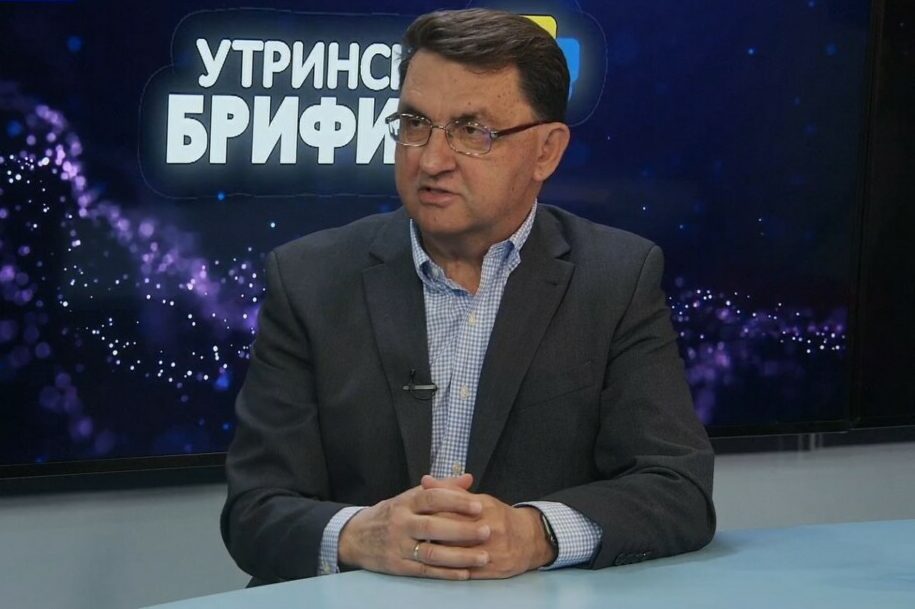Why Challenging Hate Speech Matters: Equality Body Condemns President of Skopje Council After ERRC Complaint
24 January 2024

By Judit Ignácz
On January 10th 2024 North Macedonia’s Equality Body, the Commission for Prevention and Protection against Discrimination, took a stand and published an Opinion determining that the President of the City of Skopje Council, Trajko Slaveski, made public remarks which amounted to “invoking, inciting and instructing discrimination on the basis of skin colour, social origin, or membership to a marginalized group.” In their decision, they recommended his offensive statement be removed from public discourse within 30 days and that he should refrain from using such rhetoric in future.
In December last year, the ERRC filed a formal complaint with the Equality Body concerning racist remarks made by President Trajko Slaveski, who also represents the right-wing nationalist VMRO-DPMNE party. The complaint highlighted Slaveski's derogatory language, explicitly targeting the Romani community and foreign workers in North Macedonia.
On November 24th 2023, Slaveski posted a statement on his Twitter profile referring to a phenomenon he called the 'Macedonian paradox' observed in the capital city, where individuals with dark skin (црномурести in Macedonian, presumably meaning Roma and immigrants) are seen on every street corner. Slaveski also portrayed the Romani community as lazy and dependent on social assistance, burdening the state budget. He furthermore employed far-right dog-whistle language, suggesting that refugees and immigrants are a looming demographic threat to the future of Macedonian society (alluding to the far-right ‘Great Replacement Theory’ that ethnic minorities are replacing white-European populations.)
The Equality Body’s decision against Slaveski was made in accordance with Article 9 of the Law on Prevention and Protection against Discrimination, which proscribes “any activity which directly or indirectly invites, encourages, instructs or incites to commit discrimination on a discriminatory basis.”
Widespread use of social media platforms has unfortunately led to the rise of hate speech targeting Roma and other marginalized communities, perpetuating discrimination and incitement of hatred across Europe. Yet, some politicians seem to enjoy impunity regarding their discriminatory remarks. Despite the clear harm caused by hate speech, in many countries, there are instances where politicians face little to no consequences for online hate speech and incitement, as seen with Hungarian figures who repeatedly target refugees and immigrants, Romani communities, and LGBTQI+ individuals. This lack of accountability undermines the principles of equality and justice and sends a harmful and dangerous message to society.
The Commission for Prevention and Protection against Discrimination has set an important precedent by holding Trajko Slaveski accountable for his racist remarks and is sending a powerful message that such behaviour cannot and will not be tolerated.
“The proliferation of hate speech from the political class has wide repercussions for Romani people. When politicians use racist language, it gets picked up by media outlets, it gets repeated by employers, by municipality workers, by teachers, and by schoolchildren. It ultimately can, and frequently does, lead to violent hate crimes against Roma. That’s why we must hold politicians accountable for their actions and words and demand appropriate repercussions when they engage in hate speech” said the ERRC’s Advocacy & Communications Director, Jonathan Lee.
The Equality Body in North Macedonia have turned this sentiment into action by recognising the discriminatory nature of Slaveski’s comments and taking a principled stand and holding him accountable for his words. Public figures and politicians like Slaveski carry a profound responsibility to understand the weight of their words and the profound impact they can have on marginalized and oppressed communities, shaping public opinion and either perpetuating or challenging the normalisation of hatred and discrimination. This decision to address and condemn his behaviour serves as a reminder of the importance and vital need of ensuring public figures are held responsible for their words. It also shows how Roma can be at the centre of democratic actions as active citizens collectively strive towards building a more equitable society that values inclusivity and respect and upholds the rights and dignity of every individual.




